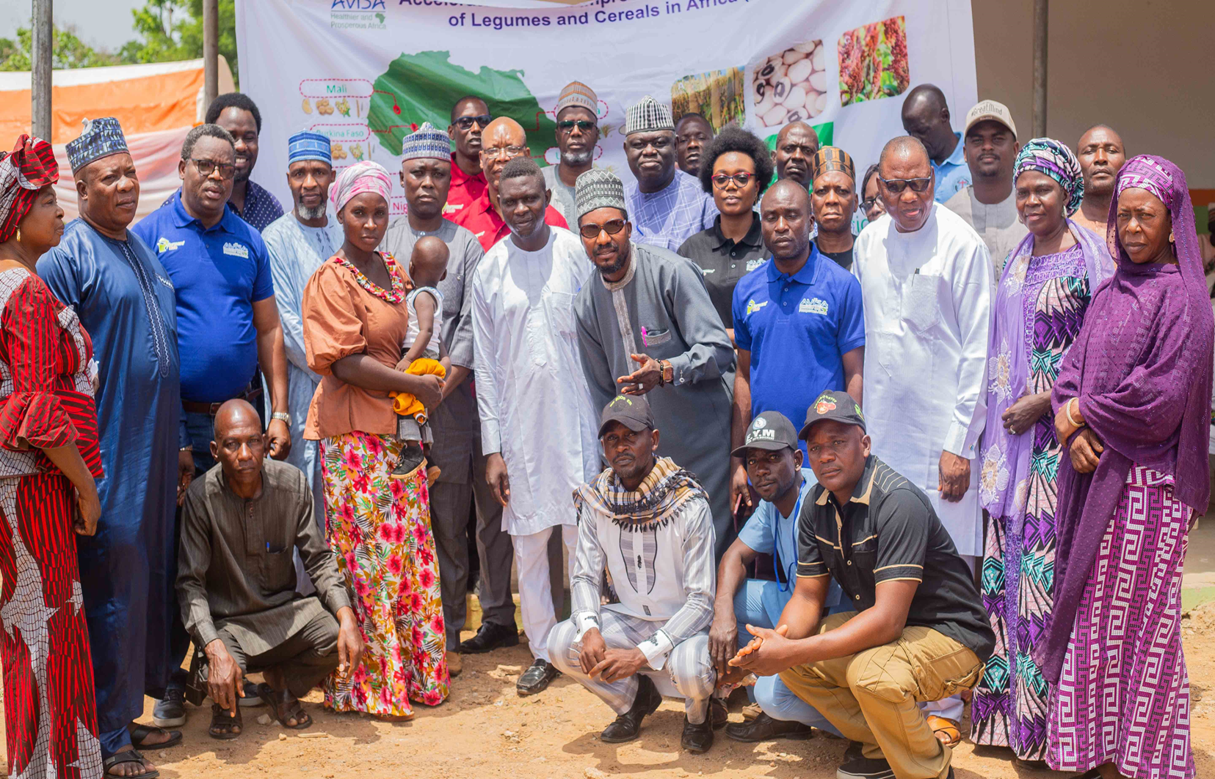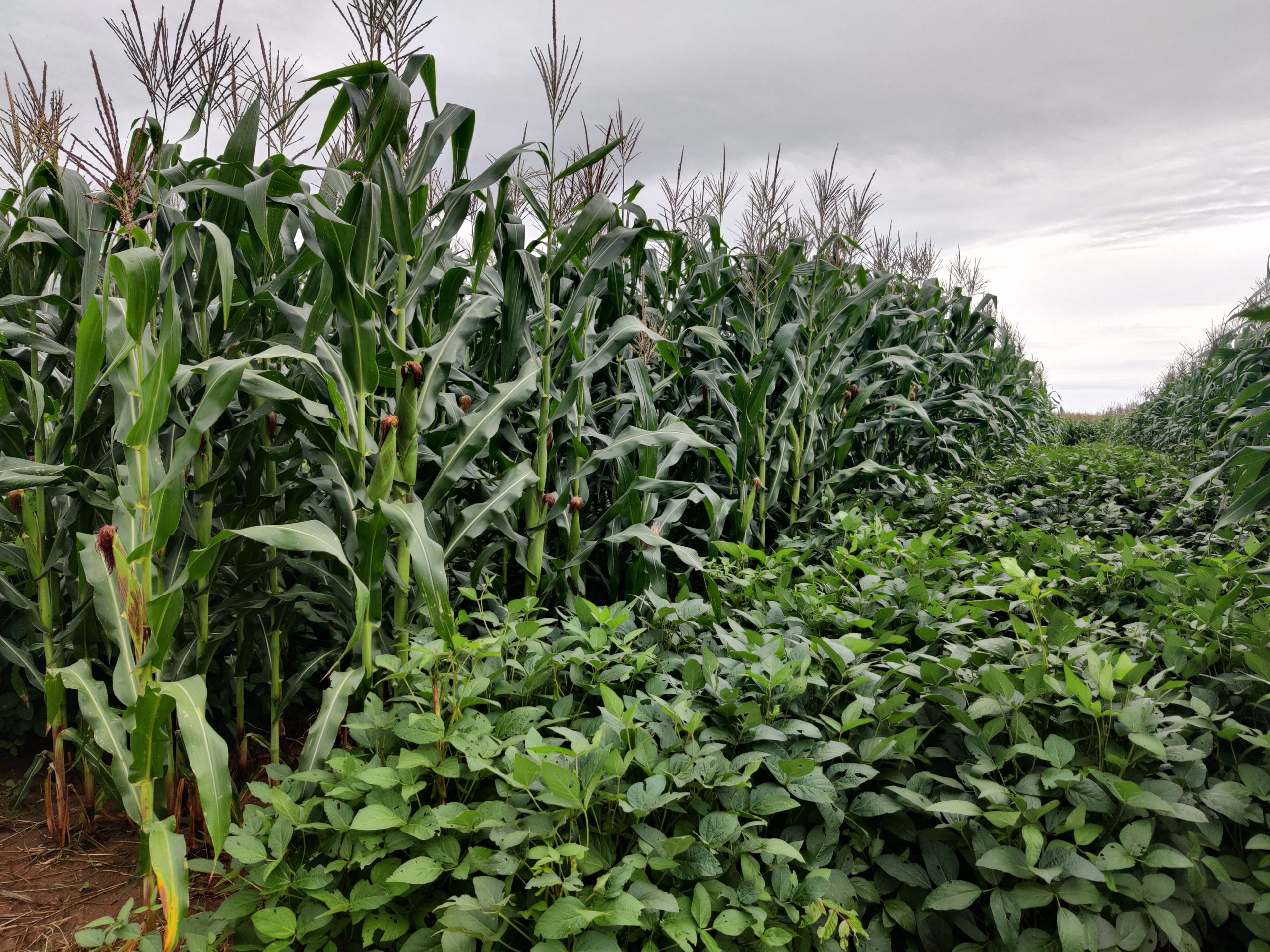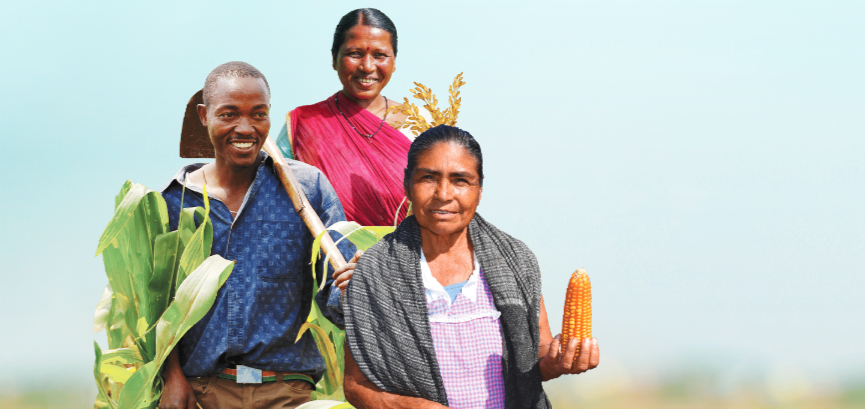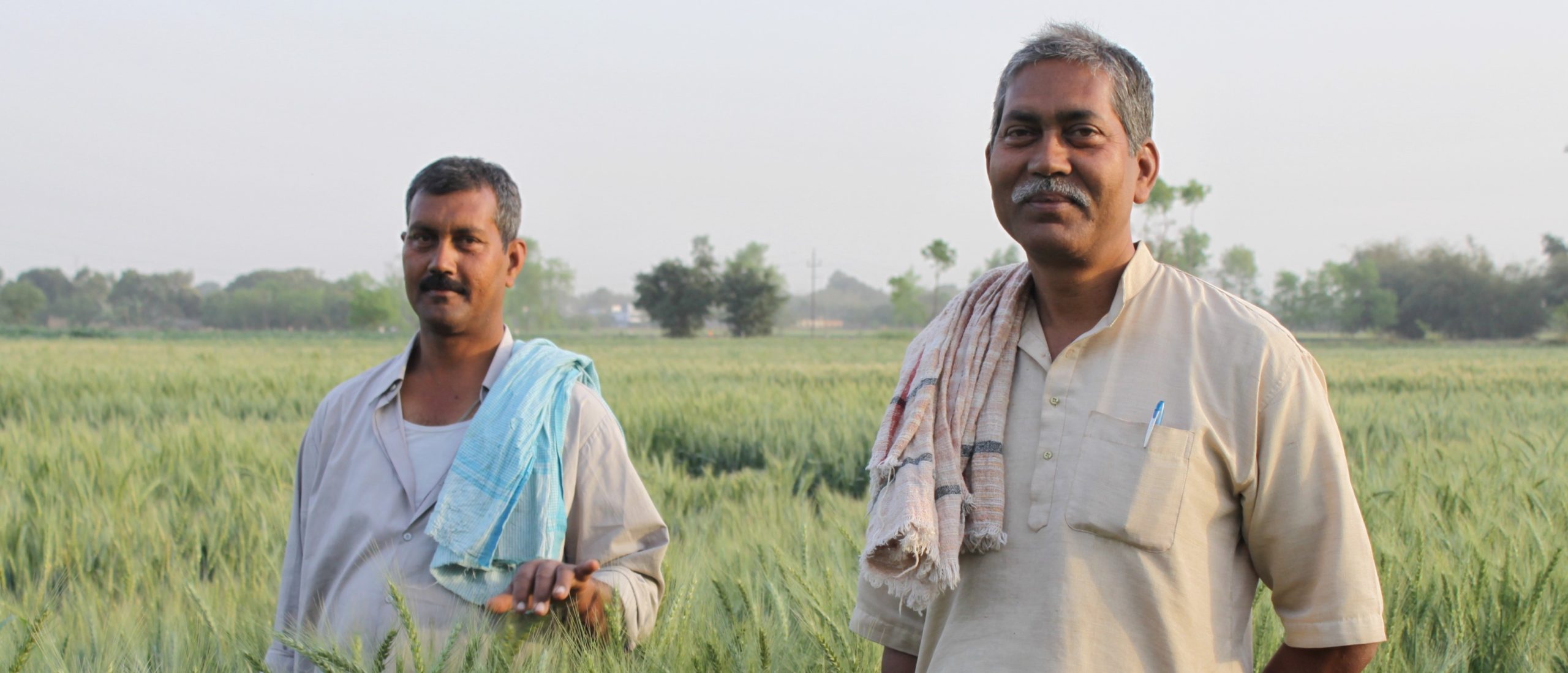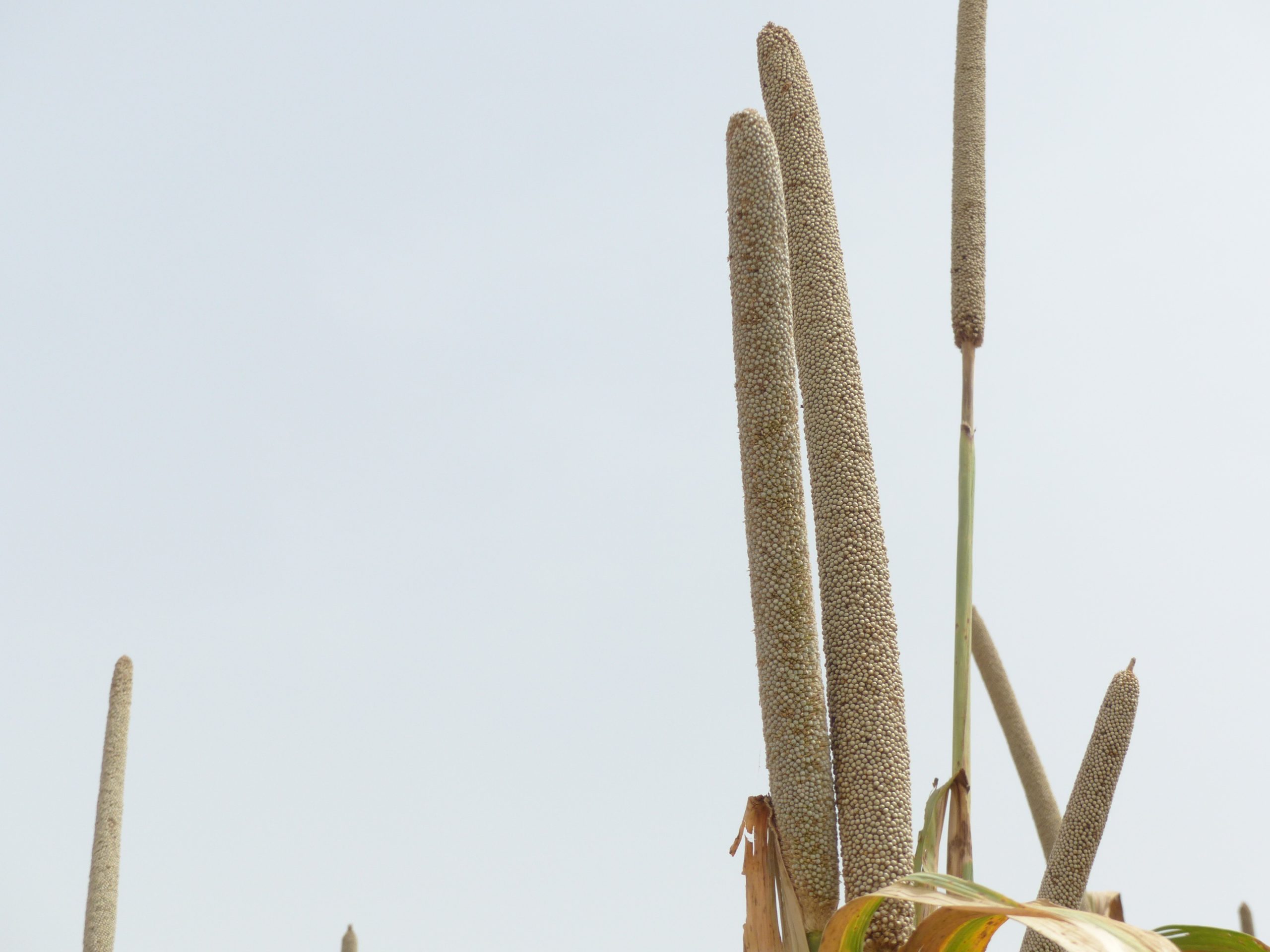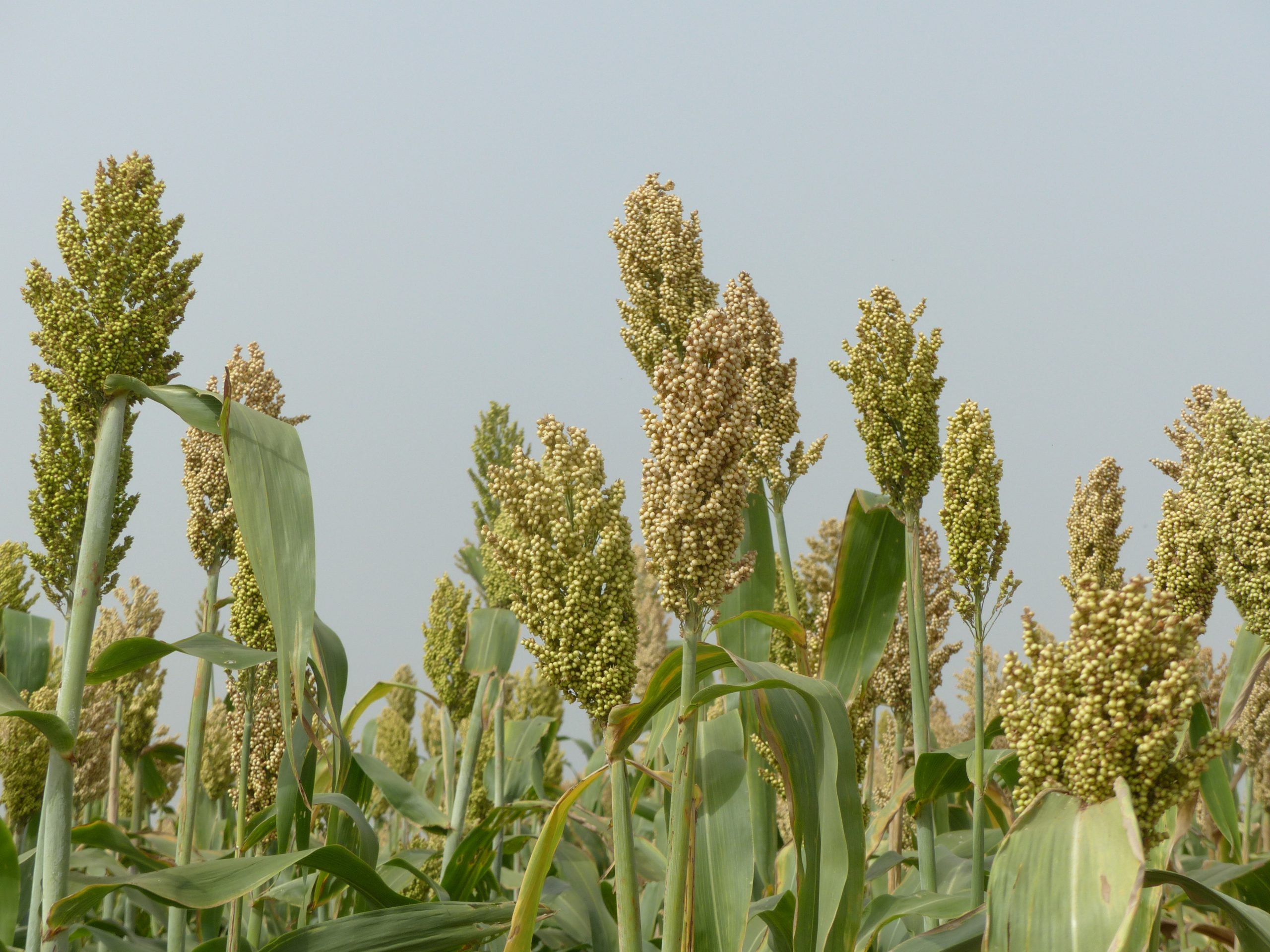Climate adaptation and mitigation
Climate change threatens to reduce global crop production, and poor people in tropical environments will be hit the hardest. More than 90% of CIMMYT’s work relates to climate change, helping farmers adapt to shocks while producing more food, and reduce emissions where possible. Innovations include new maize and wheat varieties that withstand drought, heat and pests; conservation agriculture; farming methods that save water and reduce the need for fertilizer; climate information services; and index-based insurance for farmers whose crops are damaged by bad weather. CIMMYT is an important contributor to the CGIAR Research Program on Climate Change, Agriculture and Food Security.
Farmers’ Hub launched in Nigeria to boost food security and agricultural development
 Capacity development
Capacity development
AVISA Farmers’ Hub initiative aims to empower local farmers, enhancing food security and agricultural development in North Central Nigeria.
Top food policy expert hails nation’s efforts to bolster its grain resilience
 Climate adaptation and mitigation
Climate adaptation and mitigation
Source: China Daily (15 Nov 2023)
CIMMYT Director General, Bram Govaerts, praises China’s substantial investment in science and technology for food security.
Fall armyworm research, development and extension for horticulture
 Capacity development
Capacity development
Teams from Queensland DAF, Agriculture Victoria and others joined B.M. Prasanna, CIMMYT’s Maize Program Director, to discuss fall armyworm management and explore future collaboration on plant health.
Sustainable Intensification of Smallholder Farming Systems in Zambia (SIFAZ)
 Climate adaptation and mitigation
Climate adaptation and mitigation
India transforms wheat for the world
 Climate adaptation and mitigation
Climate adaptation and mitigation
Source: Ukr Agroconsult (1 Nov 2023)
Researchers propose a unified, scalable framework to measure agricultural greenhouse gas emissions
 Capacity development
Capacity development
Source: Life Technology (30 Oct 2023)
AGREE, created by UC Davis and CIMMYT, helps analyze emissions from diverse agricultural activities.
Investment in Wheat Pathogen Surveillance
 Climate adaptation and mitigation
Climate adaptation and mitigation
Source: Medium (30 Oct 2023)
Sainsbury Lab, John Innes Centre and 21 institutes, led by CIMMYT, join forces to monitor plant pathogens and improve wheat productivity in East Africa and South Asia.
IISER Research: Greenhouse Gas Emissions From Crop Residue Burning
 Climate adaptation and mitigation
Climate adaptation and mitigation
Source: Kisan of India (17 Oct 2023)
Research from IISER Bhopal, CIMMYT and the University of Michigan calls for urgent action and highlights the potential of technology to reduce emissions and promote sustainable agriculture.
CIMMYT makes progress on some of the world’s top problems: 2022 Annual Report, “Harvesting Success”
 Capacity development
Capacity development
CIMMYT presents its 2022 Annual Report.
India transforms wheat for the world
 Climate adaptation and mitigation
Climate adaptation and mitigation
Building on a partnership spanning more than five decades, Indian and CIMMYT wheat scientists, policymakers and farmers forge a transformation path, applying innovations that ensure national food security and resource conservation.
Breaking barriers in agriculture
 Capacity development
Capacity development
Source: The Kathmandu Post (10 Oct 2023)
In Nepal, the collaboration between IWMI, CIMMYT, and local governments thus opened a promising path toward sustainable agricultural development, where the enthusiasm and involvement of farmers became the cornerstone of progress and innovation.
Millets: Climate-resilient crops for food and nutrition security, experts reveal
 Climate adaptation and mitigation
Climate adaptation and mitigation
As the world faces food insecurity and malnutrition fueled by a changing climate, experts reveal that millets, a valuable nutritious and climate-resilient food source, offer an opportunity to enhance sustainable food production and transform food systems.
Breeding for the traits of tomorrow
 Climate adaptation and mitigation
Climate adaptation and mitigation
New survey identifies opportunities for redesigning crop varieties to win the race between climate change and food security.
Canola’s opportunities abound as breeding, uses advance: IRC
 Climate adaptation and mitigation
Climate adaptation and mitigation
Source: Grain Central (26 Sep 2023)
Breeding and seed technology is an important part of the partnerships that will continue to foster thriving markets.
The world’s future wheat will need to withstand the climate crisis
 Climate adaptation and mitigation
Climate adaptation and mitigation
Source: Quartz (20 Sep 2023)
As hotter temperatures and drought become the norm in places used to growing wheat, CIMMYT is working to face new and ongoing challenges to develop a more climate resilient wheat.
